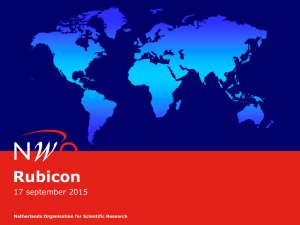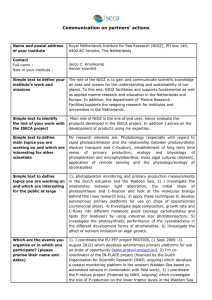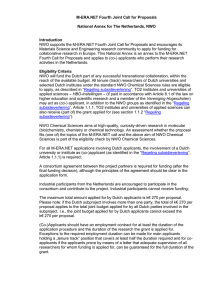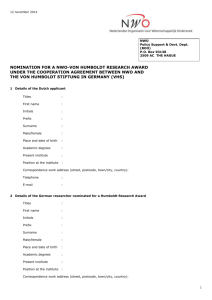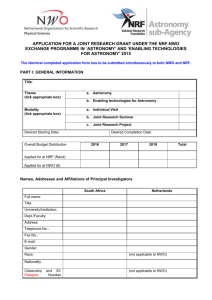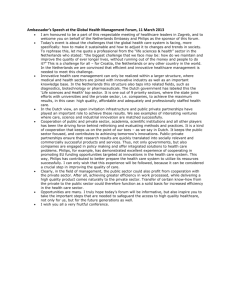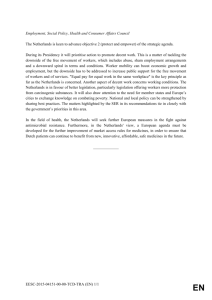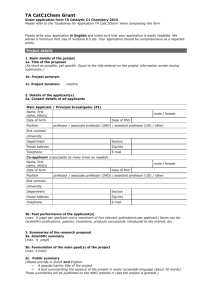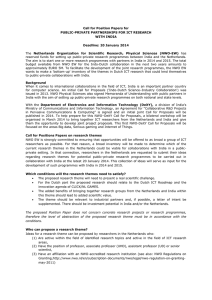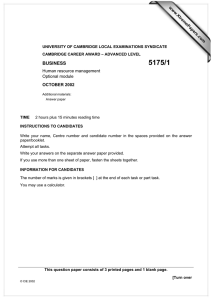Introduction
advertisement
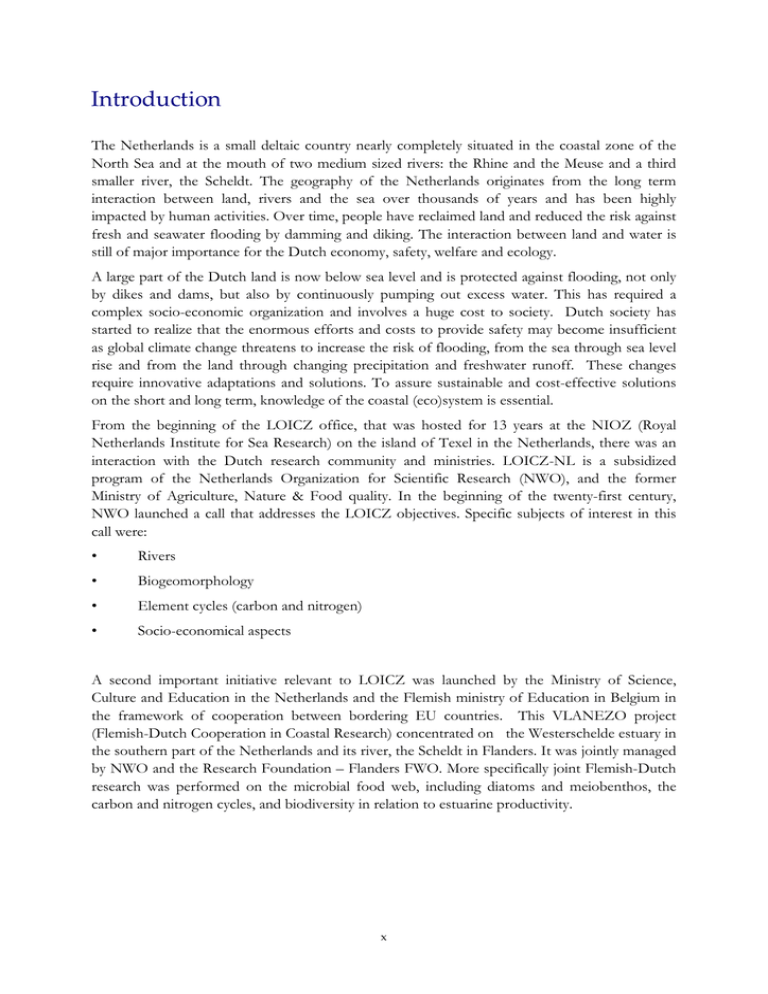
Introduction The Netherlands is a small deltaic country nearly completely situated in the coastal zone of the North Sea and at the mouth of two medium sized rivers: the Rhine and the Meuse and a third smaller river, the Scheldt. The geography of the Netherlands originates from the long term interaction between land, rivers and the sea over thousands of years and has been highly impacted by human activities. Over time, people have reclaimed land and reduced the risk against fresh and seawater flooding by damming and diking. The interaction between land and water is still of major importance for the Dutch economy, safety, welfare and ecology. A large part of the Dutch land is now below sea level and is protected against flooding, not only by dikes and dams, but also by continuously pumping out excess water. This has required a complex socio-economic organization and involves a huge cost to society. Dutch society has started to realize that the enormous efforts and costs to provide safety may become insufficient as global climate change threatens to increase the risk of flooding, from the sea through sea level rise and from the land through changing precipitation and freshwater runoff. These changes require innovative adaptations and solutions. To assure sustainable and cost-effective solutions on the short and long term, knowledge of the coastal (eco)system is essential. From the beginning of the LOICZ office, that was hosted for 13 years at the NIOZ (Royal Netherlands Institute for Sea Research) on the island of Texel in the Netherlands, there was an interaction with the Dutch research community and ministries. LOICZ-NL is a subsidized program of the Netherlands Organization for Scientific Research (NWO), and the former Ministry of Agriculture, Nature & Food quality. In the beginning of the twenty-first century, NWO launched a call that addresses the LOICZ objectives. Specific subjects of interest in this call were: • Rivers • Biogeomorphology • Element cycles (carbon and nitrogen) • Socio-economical aspects A second important initiative relevant to LOICZ was launched by the Ministry of Science, Culture and Education in the Netherlands and the Flemish ministry of Education in Belgium in the framework of cooperation between bordering EU countries. This VLANEZO project (Flemish-Dutch Cooperation in Coastal Research) concentrated on the Westerschelde estuary in the southern part of the Netherlands and its river, the Scheldt in Flanders. It was jointly managed by NWO and the Research Foundation – Flanders FWO. More specifically joint Flemish-Dutch research was performed on the microbial food web, including diatoms and meiobenthos, the carbon and nitrogen cycles, and biodiversity in relation to estuarine productivity. x Within the LOICZ-NL and the VLANEZO initiatives, a relatively large number of projects on the above-mentioned subjects were funded and a relatively large international and multidisciplinary community of scientists was supported and active for a number of years. In this report an overview of the results of these studies is presented. Carlo Heip (NIOZ) Remi Laane (Deltares) Auke Bijlsma (NWO) Kirsten (NWO) Spoorendonk Frans Martens (NWO) Hans de Boois Spoorendonk (NWO) xi
